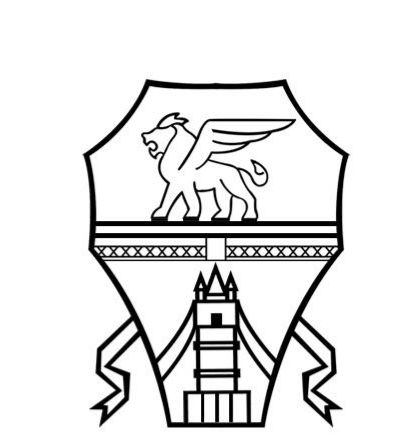Did you know that there are countless SEO benefits of using WordPress?
In fact, WordPress is not the most popular CMS in the world only for its ease of use, the ability to adapt to any type of website, the infinite features that can be implemented, the ability to manage any aspect of the site both on the front end. that on the back end …
But it is also widely appreciated for the ability to perfectly optimize all areas of SEO , from on-site, to on-page and even off-page. All topics that are covered in detail in the TUTTO SEO course , our video course that helps you optimize every aspect of your website.
In this guide I will focus on 5 SEO benefits of using WordPress, which I believe are the most important and characteristic of this wonderful instrument.
If you were to compare these characteristics with other CMS, it will be very difficult to find one that allows you to do the same things and achieve the same results.
5 SEO benefits of using WordPress
Let’s find out right away why WordPress is so SEO Friendly .
1) Code optimization
Using the right tag and also using it with certain attributes is one of the pillars of SEO. In fact, Google and all search engines observe the code with which a website is written in order to be able to interpret it and then proceed with indexing and positioning.
If you have created your site with a CMS that uses codes that do not comply with the rules of SEO, search engines will find it very difficult to interpret the content to be positioned and, consequently, your positioning will suffer.
The WordPress software, but also the best themes and plugins , are built with codes that follow all the guidelines provided by Google.
But WordPress also has features that allow you to optimize even the codes generated by you while entering content, and I assure you that many CMS are not so attentive to this aspect and this is one of the biggest SEO benefits of WordPress.
I’ll give you some examples.
When you add an image to your media library, you will find on the right of the fields to fill in, namely Alt Text , Title and others.
The alt text is the alt attribute of the <img> tag, and it is very important because Google can read it and determine what the content of the image is. Thanks to this field, you will not be able to forget to fill it in and take advantage of it by entering the keywords for which you want to rank.
Another example is the use of bold.
There are various ways to make text bold. Many CMSs use the <b> tag, but it has no SEO value. Much more important is the <strong> tag which, in addition to making the desired stylistic effect, informs Google of the presence of a particularly important piece of text.
The bold button in WordPress will insert just this tag, ensuring that not only your readers, but Google as well, will pay some attention to that part of your post.
2) Optimization of the page structure
The way your pages are structured carry some weight from an SEO point of view.
In fact, it is very important that all contain an H1, that is a higher level title, which identifies its content with precision and synthesis.
A great SEO advantage of WordPress, in fact, it is the automatic transformation of the title of your pages and articles right into the H1 tag, making sure that you don’t have to worry about making sure that it is present.
The rest of the page should be organized into several sections, each well defined and addressing a single aspect of the subject matter, or the service presented, or the product illustrated.
Thanks to the block editor, officially introduced in version 5 of WordPress , but also using page builders such as Elementor , or those of the best themes, such as Enfold , the construction of the page will inevitably take place according to a more ordered structure.
Then, by using specific SEO plugins, such as the famous Yoast SEO , you can refine the organization of your content so that it complies with Google’s rules.
3) Optimization of URLs
URLs are also important for SEO.
Among all SEO benefits of using WordPress, the ability to customize permalinks is a very important function that many other CMSs, even quite famous ones, do not contain.
Even Google engineer Matt Cutts confirms that, compared to Blogger, WordPress is a great tool for optimizing your site.
First, WordPress allows you to establish a general URL structure, valid for the entire website.
This function is located in the Settings> Permalink area . The permalinks, in fact, are precisely the structure of the URLs.
The best setting for permalinks is the one called Post Name , because it will add the words that make up the title of your post or page to your domain. Already automatically, therefore, you will get a URL structured as Google likes. You can always manually edit and improve it.
Some CMSs, especially those intended for blogging, maintain a structure that includes the publication date in the URL. Others instead assign an alphanumeric code to each article. These systems are quite difficult to manage and optimize.
WordPress still gives you the possibility to choose between these types of permalinks, but I strongly advise against them.
Do you have a site that has been running for some time and you want to change your permalinks? Be very careful, because you will run into countless 404 errors : all the URLs on your site will be changed.
And with this I connect directly to the SEO advantage of WordPress following.
4) Prevent SEO mistakes
With WordPress it will also be possible to manage the various SEO problems that may arise, such as 404 errors.
There are specific plugins that allow you to handle all the most common errors. Some of these plugins are capable of solving various types of problems, so you don’t have to install a plugin for every single critical situation.
The Yoast SEO plugin, which I mentioned earlier, for example, will help you in the structure of the page and in writing a well-optimized article, but it will also allow you to manage redirects, that is, redirects from a URL that no longer exists to one. which instead is fully functional.
Also, if you decide to change a page’s permalink, Yoast will automatically create the redirect.
Other extremely useful plugins are W3 Total Cache and WP Super Cache , which will help you improve performance, speed up your website and avoid slowdowns of various kinds.
5) Off-site SEO tools
Off-site SEO is that area of SEO that concerns all the activities to be carried out outside the site in order to attract traffic, improve your visibility, increase your authority.
Thanks to WordPress, you can easily manage the sharing of your articles on social networks through simple and customizable buttons. Furthermore, you will be able to take care of what will be the appearance of your content shares , setting images, titles and texts that capture the attention.
WordPress will also allow you to manage relationships with your visitors and customers, helping you to build a real community around your company, your blog or your business.
Conclusion
As you see, i SEO benefits of using WordPress They are different. On the one hand, the very nature of the platform favors the indexing of content. On the other hand, the many tools available allow even those who are not an expert to make technical changes that have a notable effect in terms of SEO optimization. In this regard, we have created a private community designed specifically for those who want to learn SEO techniques for free. You can access ALL SEO for free by clicking here .
And have you ever adopted a real strategy to optimize your site for SEO?
Have you noticed an improvement on the SERP page?
Do you know other tools to suggest?
For any questions and / or suggestions, as always, I invite you to leave a comment
in the community.




